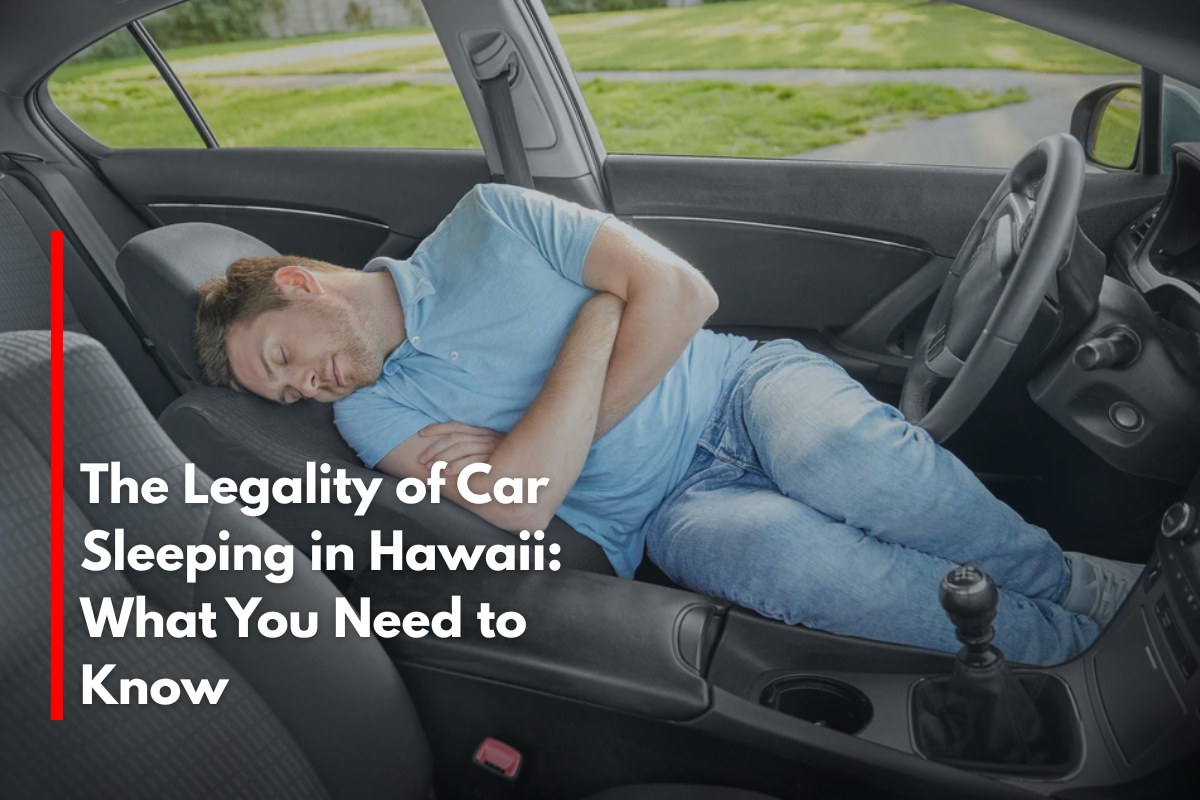Visiting or living in Hawaii, you might be tempted to save on accommodation by sleeping in your car. With Hawaii’s high lodging costs and beautiful views, this idea can seem practical—but there are important legal hurdles. Here’s what you need to know before planning a night in your vehicle.
Is Sleeping in Your Car Legal in Hawaii?
Sleeping overnight in your car is generally illegal in public areas throughout Hawaii. The state and its counties have strict laws that prohibit using vehicles as living quarters or for overnight lodging in public locations.
State Law (§291C-112): It is illegal to use your car for human habitation between 6 p.m. and 6 a.m. if parked on any public street, roadway, highway, or public property—including beach parking lots, trailheads, and roadside areas.
County Ordinances: On Oahu, Maui, Kaua‘i, and the Big Island, local rules make it illegal to sleep in vehicles in parks and public lots overnight. Fines range from $35 to $100, and repeat violations may lead to towing or citations.
Why Is Car Sleeping Restricted?
Hawaii faces high homelessness rates and heavy tourism traffic, so laws restricting car sleeping aim to prevent long-term vehicle dwelling, maintain community standards, and keep public areas safe and accessible for everyone. These rules are strictly enforced, and even short overnight stays can trigger penalties.
What About Private Property and Campgrounds?
Private property is different:
If you have the owner’s permission, you may legally sleep in your car on private land—this includes private farms, rental lots, and some businesses. However, always confirm with the property owner and avoid assuming it’s permitted.
Campgrounds:
Many state and county campgrounds allow overnight parking and sleeping in vehicles if you have a camping permit.
Are There Any Safe Places for Car Sleeping?
Always look for posted signs—“No Overnight Parking” is common near beaches, tourist spots, and residential neighborhoods.
What Happens If You’re Caught?
Penalties for illegal car sleeping in Hawaii may include:
Enforcement is strict, especially in popular tourist areas and residential neighborhoods.
Helpful Tips
Research local laws before your trip.
Obtain proper camping permits for overnight stays in designated campgrounds.
Never sleep in vehicles on public property, at beaches, or in parks.
Always ask for permission when parking on private land.
Sleeping in your car in Hawaii is not legally permitted in most public areas. However, there are limited legal options if you plan carefully—stick to permitted campgrounds and private property with explicit consent. Avoiding fines and inconvenience is as easy as planning ahead and respecting local laws.
Sources
[1] https://dioceseofvaranasi.org.in/illegal-to-sleep-in-your-car-states-where-it-s-not-allowed
[2] https://collincountymagazine.com/2025/07/09/the-legality-of-car-sleeping-in-hawaii-what-you-need-to-know/
[3] https://dioceseofvaranasi.org.in/sleeping-in-your-car-state-laws-you-need-to-know
[4] https://www.lovebigisland.com/big-island-camping/
[5] https://www.boondockersbible.com/learn/hawaii-rest-area-rules/











